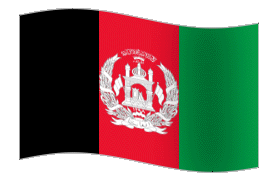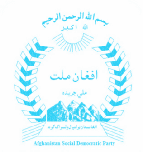The Peace Initiative
Ajmal Shams
South Asia Magazine (September-
As usual the spring offensive by the Taliban insurgents moved well into the summer offensive as an increasing number of attacks are being regularly planned and executed in different parts of Afghanistan including the capital Kabul that has been witness to a wave of suicide bombings during the past several months. Last month 14 civilians belonging to Shia sect were executed in the western Ghor province. The Taliban militants were accused. Yet, there is no claim by the Taliban and the involvement of other groups who supposedly might have intended to trigger sectarian strife cannot be ruled out.
Regardless of whether the above-
In 2013, the Taliban opened a political office in Qatar, the first time since their collapse in late 2001 the insurgents had a formal address where they could be reached. However, the circumstances surrounding the initiative raised suspicions as to the sincerity of the effort. The move was rejected by the Afghan Government as the office carried a sign and flag of the Islamic Emirate. Afghan Government condemned the peace effort accusing the US to have hidden agenda behind the move. The Afghan Government’s stance was that any peace dialogue with the Taliban should be led by the Afghan Government and not by others. In an effort to convince the Afghan side to come to the negotiating table, the signboard was removed. Yet the damage had already been done and the efforts ended fruitlessly. Ever since, there has been no serious effort towards peace talks with the Taliban.
As of September 2014, the country’s political scene is dominated with the election
campaign for the office of the new elected president to succeed the incumbent Hamid
Karzai. The election season has somewhat overshadowed the efforts by the Afghan government
and its international partners. Yet, the issue is on top of the agendas of the candidates
in the run-
The Taliban insurgency should be looked at within the larger sphere of global and
regional power politics where the victim is Afghanistan due to its geo-
The threat of the Taliban militancy is no longer limited to Afghanistan. A different version of the extremism with different goals is threatening Pakistan as well where Khyber Pakhtunkhwa Province has been particularly the victim of the unrest. The cost of human suffering for the country has been huge in recent months in the form of thousands innocent lives lost as collateral damage caused by Pak Army operation and thousand others displaced from their homes in Waziristan and forced to migrate across the Durand Line into neighboring provinces in Afghanistan.
Any political settlement of the Taliban issue in both Afghanistan and Pakistan should
be part of the regional political framework that paves the way for the countries
of the region who have direct or indirect stake in the issue to reach a conclusion
of peaceful co-
One of the main challenges for the upcoming administration in Kabul will be to bring
peace to the war-
Although all indications suggest that as foreign troops begin to withdraw from the country, the Taliban will further intensify their insurgency. Yet, with the right kind of political atmosphere there is no reason the militants cannot be integrated into the mainstream politics of the country. Any such effort though cannot be accomplished without active facilitation and cooperation effort from Pakistan.
While Afghanistan is yet to come out successfully from the election stalemate, the
US and UN intervention and mediation has paved the way for the two leading candidates
i.e. Dr. Ashraf Ghani and Dr. Abdullah to form a national unity government where
both the winner and loser are committed to work together and agree on the political
framework. Dr. Ghani was announced winner in the preliminary result that was challenged
by the rival Abdullah and eventually the two candidates agreed on hundred percent
audit of all votes polled. All signs are that Dr. Ghani will retain his majority
even with the audit thus becoming Karzai’s successor to lead Afghanistan as its newly
elected president. If elected, Dr. Ghani has promised to integrate both the Taliban
and Hekmatyar’s Hezb-
(Courtesy: South Asia Magazine -
The writer is President of the Afghanistan Social Democratic Party better known as Afghan Millat National Progressive Party and is based in Kabul, Afghanistan. He served as Policy Advisor to President Dr. Ashraf Ghani when he chaired the security transition commission. He mainly writes on political and developmental issues. He has published in the News International, the Gulf News, the Asia times, South Asia Magazine and several other national and international journals.
دافغان ملت ملي مترقي ګوند

Afghanistan Social Democratic Party

Copyright © Afghan Millat 2007-